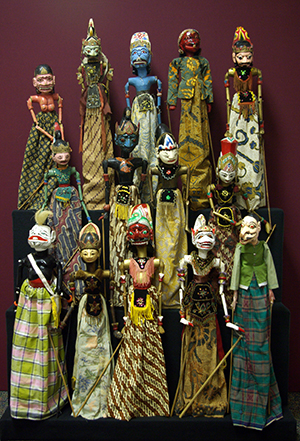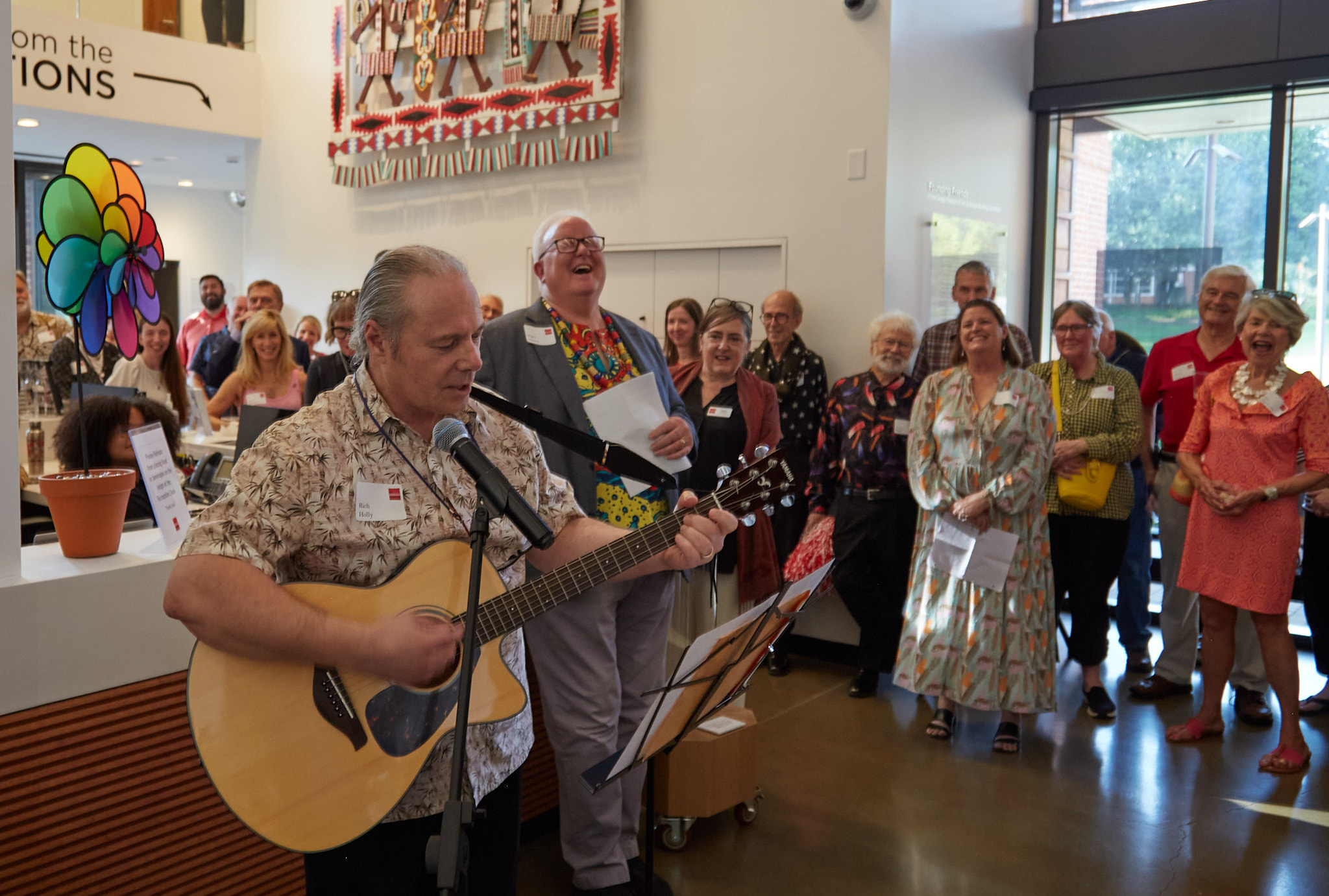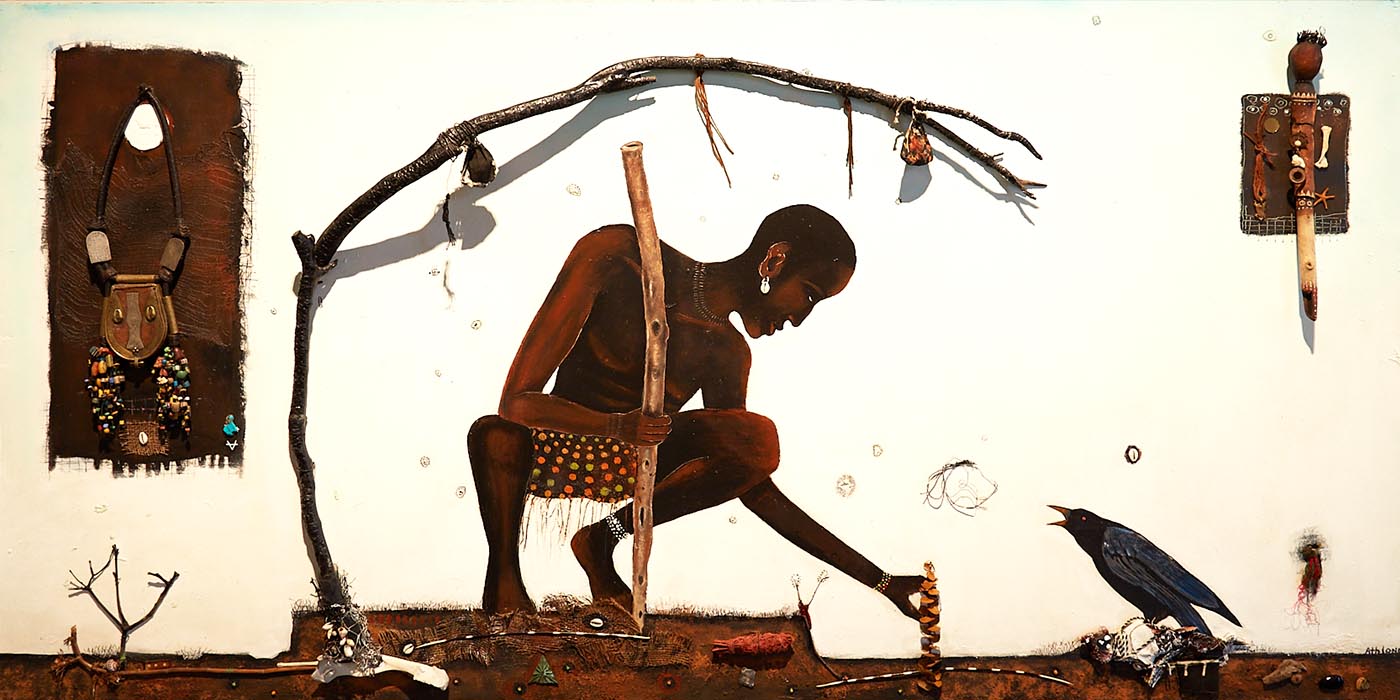A life lived: John C. Henry
Gifts such as an astonishing array of objects, generously donated, make a terrific addition to the museum’s holdings, and help to further the museum’s focus on excellent examples of art and design. The Museum is most grateful to donors such as Mr. John C. Henry, and are therefore saddened by the news of his passing in November of 2020.
In early 2013, Gregg Director Roger Manley received a message from a loyal supporter of the Gregg that every museum director both loves and dreads : “We have a good friend who has a great collection of ____________, but needs to dispose of it and doesn’t know what to do. We said we’d ask if it might be something for your museum.â€
Fortunately, Mr. Henry’s collection of international puppets turned out to be a superb collection of puppets, as recommended by Drs. Norman and Gilda Greenberg (who had gifted their own fine collection of Native American art and artifacts to the Gregg).

The first visit to Mr. Henry’s home in 2012 confirmed that this musician, artist, and puppet-maker had filled his small rooms with Indonesian shadow puppets and rod puppets, Chinese opera figures, and puppets from Sri Lanka, Burma, Africa, the United States and Great Britain, including an entire English Punch-and-Judy troupe, complete with scripts, scenery, and the puppeteer’s original traveling trunk, lined with Edwardian newspaper clippings. At its next opportunity, the museum’s Collections Committee approved the acquisition of the bulk of Mr. Henry’s puppet collection and made arrangements to pack and transport it to the museum. The individual puppets were carefully cleaned and prepared for archival storage, where they would remain until an opportunity would come to display them.
In 2015, that opportunity came when the Gregg collaborated with Molly Renda and Greg Raschke of D.H. Hill Library Special Collections to present Life’s Little Dramas—Puppets, Proxies, and Spirits. Along with many of the purposebuilt
puppets donated by Mr. Henry, the exhibition also included robots, toys, and a functioning replica of NASA’s Mars Rover. The show won a number of awards, but would not have been possible without Mr. Henry’s gift.
John C. Henry was born in 1925 in Greenville, SC, and was still a teenager when he received a scholarship to study commercial art in Nashville, Tennessee, after submitting a small portfolio of his self-taught work. A year into the program, however, he was drafted into the Army and served as a drill sergeant in the Philippines and Japan during WWII. At war’s end, he returned to Nashville to complete his art studies, then moved to Chicago to work as an illustrator for a major ad agency before founding his own commercial art studio, which created manuals and catalogues for companies like John Deere and Whirlpool. Meanwhile, he developed a thriving sideline as a professional portrait painter. In the early 1980s he retired from advertising and commercial work to move to Myrtle Beach, SC, where he pursued painting portraits, seascapes and personal work while continuing to develop his talents as a pianist and puppeteer. He moved to Chapel Hill in the late 1990s and to Durham a few years later. In 2012 he donated a major collection of antique puppets to the Gregg Museum, and remained a loyal visitor to the museum for a number of years. He passed away on November 21, 2020, to be interred among the rest of his birth family in Clinton, SC.


